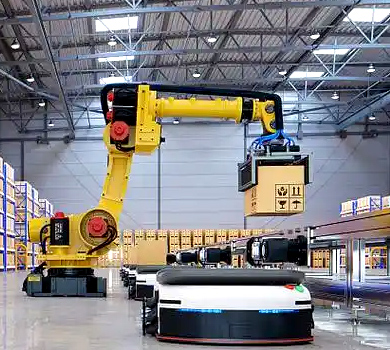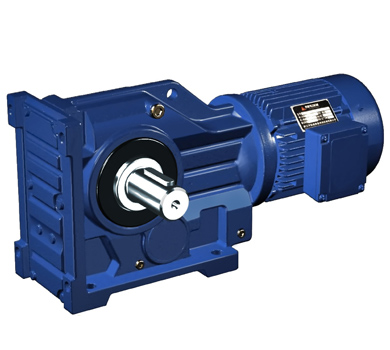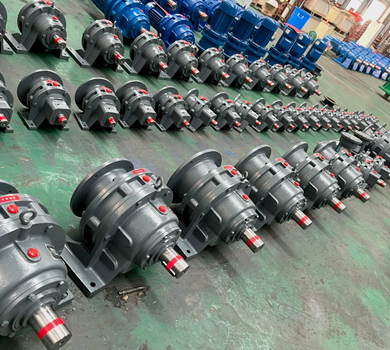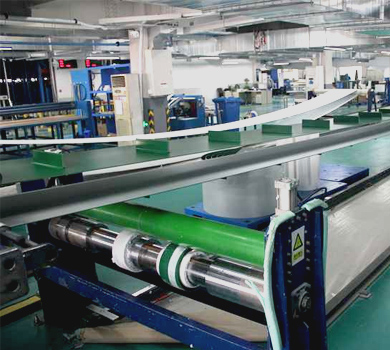1. Industry Challenges and Pain Points Analysis:
Injection molding automation with multi-cavity rapid tool change systems is a rapidly evolving segment within the industrial automation industry. These systems are widely used in high-volume plastic part manufacturing and require precision, speed, and flexibility to switch between molds efficiently. Typical equipment configurations include high-speed robotic arms, mold clamping units, and multi-axis servo drive systems, all of which demand high-performance motion control components.
Despite the growing adoption of these systems, the industry faces several critical challenges:
- Transmission System Reliability: Frequent tool changes place high mechanical stress on gearboxes, leading to premature wear and reduced system uptime.
- Energy Efficiency: Inconsistent torque and high power losses from inefficient gear systems can increase operational costs and energy consumption.
- Compactness and Integration: The trend toward modular and space-efficient machine design requires gearboxes with high torque density and minimal footprint.
- Environmental Compatibility: Systems often operate in high-temperature or cleanroom environments, which necessitate gearboxes with thermal resistance and IP protection capabilities.
2. Critical Role and Technical Requirements of Gearboxes in This Industry:
In multi-cavity rapid tool change injection molding systems, gearboxes play a central role in delivering precise and repeatable motion. Key performance requirements include:
- High Torque Density: Ability to transmit high torque in a compact form factor.
- High Transmission Accuracy: Low backlash and high positioning precision to ensure consistent part quality.
- Fast Response Speed: Enables rapid acceleration and deceleration, essential for high-speed tool switching.
- Compatibility with Servo Systems: Must support high-frequency control inputs and have minimal hysteresis.
- Environmental Adaptability: Resistance to heat, vibration, and dust is critical in industrial settings.
- Long Service Life and Low Maintenance: Extended operational life reduces downtime and maintenance costs.
3. Waimica’s Harmonic Drive Solution for Injection Molding Automation:
Waimica’s harmonic drive solutions have been specifically tailored to address the unique demands of injection molding automation. These gearboxes are engineered with precision in mind and are built to meet the following key criteria:
- Structural Design: Waimica’s harmonic drive features a modular and compact design, allowing for easy integration into automated injection molding systems.
- Performance Parameters: The gearboxes offer a wide torque range from 50 Nm to 500 Nm, with high positioning accuracy (±1 arcmin), high transmission efficiency (up to 90%), and support for ISO standard input flanges for seamless system compatibility.
- Special Environmental Support: Waimica harmonic drives are designed to operate reliably in high-temperature environments (up to 120°C) and can be configured with IP65 or IP67 protection for dusty or humid conditions. They also meet ISO 14644-1 cleanroom standards where required.
| Parameter | Waimica | Brand A | Brand B |
|---|---|---|---|
| Torque Range (Nm) | 50–500 | 50–500 | 50–500 |
| Backlash (arcmin) | ±1 | ±1.5 | ±1.2 |
| Transmission Efficiency (%) | 90+ | 88+ | 89+ |
| Service Life (hours) | 30,000+ | 25,000+ | 28,000+ |
| Operating Temperature (°C) | -20 to 120 | -20 to 100 | -20 to 110 |
| IP Rating | IP65 / IP67 | IP65 | IP65 |
| Modularity | High | Moderate | High |
| Customization Capability | Excellent | Good | Good |
4. Typical Application and Customer Feedback:
Customer Profile: A leading European manufacturer of high-speed injection molding systems was seeking a reliable and compact harmonic drive solution to replace existing units from a certain brand, which were experiencing frequent failures due to high thermal loads and mechanical stress during rapid tool changes.
Requirement:
- High torque density to support heavy mold switching operations.
- Backlash below 2 arcmin to ensure accurate positioning.
- High thermal resistance for continuous operation in high-temperature environments.
- IP67 protection for dust and moisture resistance.
Waimica’s Approach:
- Our technical team conducted a site visit to assess the mechanical and thermal conditions of the existing system.
- We performed a detailed load analysis to identify the torque and speed requirements of the tool changer.
- Based on the findings, we recommended the Waimica HDS-100 series harmonic drive, specifically configured for high thermal performance and compact installation.
- Our team provided on-site installation support and conducted a series of performance tests to ensure smooth integration.
Results and Feedback:
| Parameter | Before Waimica | After Waimica |
|---|---|---|
| System Uptime (Hours) | 6000 | 7500 |
| Average Downtime per Month (Hours) | 10 | 2 |
| Maintenance Frequency | Every 4000 hours | Every 8000 hours |
| Positioning Accuracy (arcmin) | ±2.5 | ±1.2 |
Following the implementation of Waimica harmonic drives, the customer reported significant improvements in system stability and reduced maintenance costs. The customer expressed high satisfaction with the performance and reliability of the Waimica solution and has since expanded its use to other production lines.
5. Conclusion and Waimica’s Brand Value:
Waimica has demonstrated strong technical capabilities and high product performance in supporting multi-cavity injection molding automation. Our harmonic drives are not only reliable and energy-efficient but also highly customizable to suit a variety of system requirements and environmental conditions.
As a high-value alternative to imported products, Waimica offers a competitive edge with its:
- High-quality manufacturing standards;
- Short lead times and global logistics support;
- Expert technical support and project collaboration;
- Cost-effective yet high-performance solutions.
With the global shift toward smart manufacturing and high-speed automation, Waimica is well-positioned to provide durable and innovative gear solutions. Our commitment to continuous R&D and customer-driven design ensures long-term value and success in evolving automation markets.







